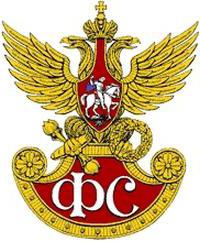The courier service appeared as a result of the signing of the Decree by Paul the First on December 17, 1796. According to the decree of the emperor, a special corps was formed, the personnel of which carried out the delivery of securities, reports, orders, parcels. His tasks also included escorting senior officials. Let us consider in more detail what constitutes the Federal courier communication today. 
Historical information
In Soviet times, the corps was reorganized into the Foreign Relations Service. Subsequently, it was transformed and became subordinate to various departments. In 1921, courier communication was created in the structure of the Cheka. On November 25, 1991, the Service Directorate was transformed into the SFS of the RSFSR. The following year, at the end of September, this structure was reorganized into the Federal Security Service under the Ministry of Communications of the Russian Federation. At the end of January 1995, the Office was reorganized again. Now instead of it, the GFS of the Russian Federation began to exist.
The next year, another transformation took place, as a result of which the State Courier Service was established under the Ministry of Communications of the Russian Federation. At the end of August 1997, she became subordinate to the Government of Russia. In May 2000, the SFS was transformed into the State Courier Service of the Russian Federation. After the adoption of the Republic of Crimea into the country, the personnel of the body was reduced to create units in the territory of the new subject. Now courier communication works in all republican, regional and regional centers. Units have also been created in large cities of special economic and strategic importance. 
Tasks
Courier communication ensures prompt delivery and guaranteed safety of especially important correspondence. It includes, among other things, top secret documents. Correspondence delivery is carried out from:
- President of the Russian Federation, state authorities.
- Units of the prosecutor's office.
- Regional authorities.
- Local government structures (by government decisions).
- Members of the Federation Council of the Federal Assembly, deputies of the State Duma, representatives of the legislative bodies of state power of the constituent entities of the Russian Federation.
- The Ministry of Defense, subdivisions of the Armed Forces Directorate, military branches, fleets, military districts, regional commands, territorial departments of the FSB.
- Administrations of military and industrial facilities of particular importance for the country (by decision of the government).

International message
Courier communication also provides delivery of correspondence abroad. This also includes sending technical documents and industrial designs by decision of the government or the president. Correspondence is also delivered to heads of foreign countries and heads of government and from them to Russia. In this case, there is an intergovernmental courier communication. This type of correspondence is delivered between the countries participating in the relevant agreement. Shipments are forwarded to and from the authorities of the EurAsEC, the CIS, and the CU located on the territory of the Russian Federation. The tasks of the SFS also include the management of territorial divisions and organizations providing the activities of the service, which were formed to fulfill the functions assigned to it. The operating procedure of the body and other significant issues related to the delivery of particularly important correspondence are regulated in the Federal Law "On Courier Communication". 
Spread
Communication units are located in all administrative centers of the Russian Federation. The unified system includes offices that deliver 112 permanent routes. Of these, 60 are aviation, 16 are automobile and 36 are railway.In a unified system of the SFS there are departments of the central office, 5 Moscow departments, seven - district, one regional. In addition, there are 89 territorial units in the administrative centers and capitals of the constituent entities of the Russian Federation, including in Sochi and the Minvody.
Activities
About 300 service employees are present on trains and planes daily. In addition, there are regular departures and meetings of courier service employees arriving on these routes to Moscow. SFS units are constantly involved in the delivery of election documents, protocols with the results of voting during the campaigns of the President, State Duma deputies, as well as during elections to state authorities of the Russian Federation.
Guide
The SFS is managed by a director who is appointed to his post and dismissed by order of the President. The leader is personally responsible for the performance of tasks assigned to the service. The number of deputy directors is also determined by the President. From 2012 to the present, V. V. Tikhonov has been acting as the head of the SFS. Deputy directors today are V. A. Bocharnikov and A. N. Kaledkin.
